Time in Its Flight With an L.C. Smith
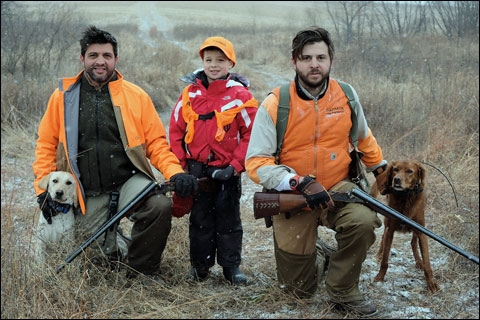
This story is about a gun and a family. To understand the importance of the gun, you need to understand the importance of the family.
The Family
My father immigrated to the United States in 1974. He was born in Pakistan and grew up hunting in the British wing shooting tradition his country adopted under the Union Jack. After he immigrated, he met my mother, Marcia. She is from the smallest town in Missouri you can find and, frankly, his opposite. As men often are, he was charmed with what he didn’t understand and fell in love.
Hard as a coffin nail is a plain way of saying my grandfather, Russell, was not an easy man to know. He allowed the chink in his armor to be birddogs and quail. When he found out my father was a wing shooter, he invited my father on a Missouri quail hunt. My father knew if he was going to make a good impression, he needed help. My father wrote to his brother, a professional hunter still in Pakistan, to send him one of the family guns. My uncle sent a 1936 L.C. Smith Featherweight Field 16 gauge, stocked English. Enough of a gun to make an impression but understated enough to be humble coming out of the case.
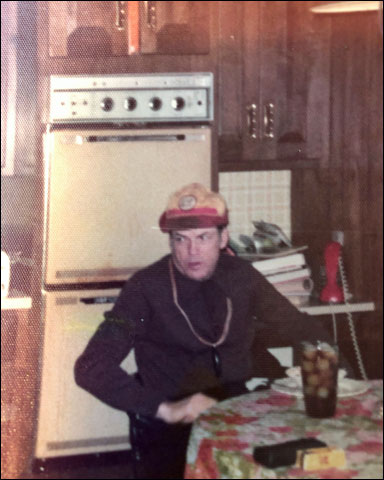
It did make an impression. Russell and my father became fast friends and remained so until Russell died nearly 20 years ago. Before the drive to Russell’s funeral, I didn’t know my father was capable of crying. My father hunted less and less after Russell passed. It seemed to me his passion for hunting died with Russell. This is what I find interesting and wish more people understood about hunting. It has the ability to bring people together from opposite ends of the earth – people who couldn’t be more different – and forge them into a family.
So that’s how this story starts. A brother calling on another brother for help, an American gun traveling around the world and bringing a family together. Without these particular events, in this particular order, you wouldn’t be reading these words. I wouldn’t be here to write them.
The Gun
When my brother, Joshua, and I got old enough, we learned to hunt by following in the snow behind my father and Russell. Being older, he learned these lessons before me. Though all of his and Russell’s lessons, in my father’s hand was always his L.C. Smith. Following hunts, we were instructed to clean the guns. We fought over who got to clean that gun. When we got old enough to hunt by ourselves, we fought over who got to use my father’s gun. Though we bickered, he was always my older brother and always looked out for me. When the day came for him to leave for college, I planned to punch him and say, “This is for all the times, I didn’t get you back.” When my fist connected, I tried to recite my line, but the only thing I managed to say came between sobs and wiping tears from my face. He was my best friend.
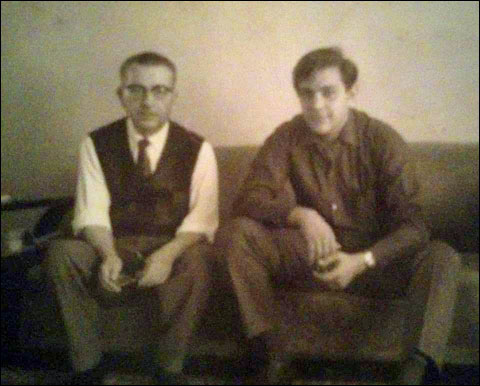
Years passed, and we both grew up. I can’t pretend to understand why at various times life changes the way it does. Winds of fate swing without course or correction and often take with it the love we keep closest. For a period, life changed for both of us and more often than I am proud to remember, I hunted by myself. Before sunrise, I would slip into my father’s closet, grab his gun and then make the two-hour drive to our farm where I would walk the fields alone.
Bird hunting became more than a hobby for me. I made the decision to leave my hometown when I was 25 to work in prairie conservation. I wanted to protect the drab little prairie bird that means little to most but helped bring my family together. By this time life for my brother and I changed again, and we had become more than siblings. We had developed the type of friendship that only exists between brothers. My departure was taking me north and he wanted to see his little brother off properly, so we planned to make one last trip to the farm together. Shortly before we left my father came to us and said, “Rehan when you leave, why don’t you take your L.C. Smith with you.” He looked at each of us, then walked away without saying any more.
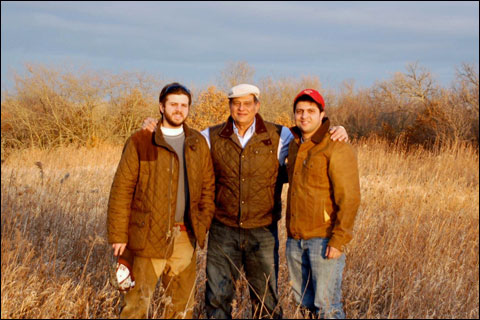
The moment was bittersweet. While I had been given my father’s gun, something I coveted, I knew my brother was left without something he loved equally. He was out in the cold without a coat. My brother said nothing, respected my father’s wishes, and in his own way came to terms with it. After that day, he never once brought up my father’s decision.
My life took me on a tour of wing shooting that I am lucky to have experienced. The Smith was always in the car with me. I took prairie chickens, pheasants, quail, ruffed grouse, ducks, woodcock, dove and other upland game with it. When I was cold, lonely and found myself in the middle of nowhere, I had my family with me. It’s a simple but grand truth that walnut and steel can be more than just walnut and steel.
The Smith became an extension of myself throughout my travels. I thought more about its story and how it came into my father’s possession from his brother. I decided I had to find a suitable replacement for my brother. It was the right thing to do. But how do you find something to replace a memory?
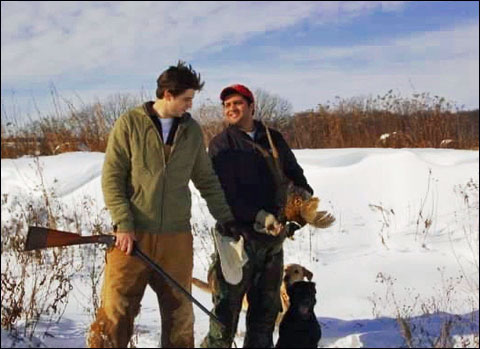
A piece of advice: Abandon hope all ye who search to replace your favorite gun.
I have drifted in and out of gun and pawn shops across the country for the past ten years looking for my brother’s gun. I have been searching for something that until recently I haven’t fully understood or knew existed. Searching for that gun, though, was a way to come home when I couldn’t be further from the embrace of a mother, the firm handshake of a father, the laughter of a sister, and the silent understanding of a brother. For a brief moment looking at those guns, I was walking the field again with the people I cared about on a warm November day in the Missouri countryside.
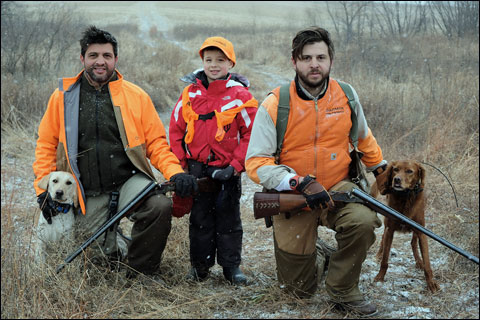
Of the hundreds, maybe thousands, of L.C. Smith’s I picked up, none of them were right. My brother’s gun had to be not only a 16-gauge L.C. Smith with a few unique features, but given the qualities of mine, it had to be an outstanding bird gun. But it didn’t seem to exist in this world. So, I would open the door to leave. The warmth of memory cut time and again without mercy or understanding by the same blight of whichever small, grey, nameless town I was in, and the same cold, winter west-wind that never stopped howling as it rolled across the prairie.
Redemption
I moved home two years ago to be with my family as my mother battled cancer. By the time she got through it, something had changed in me. The desperate song of an unknown future wasn’t singing to me anymore. I stayed in Kansas City to be with my growing family, bought a house, met my wife, and settled into what I missed during those years on the road. Now, the wind didn’t seem to howl as loud.
But the search for my brother’s gun continued. As this hunting season approached, I found myself drifting again to a gun shop a mile away from the office.
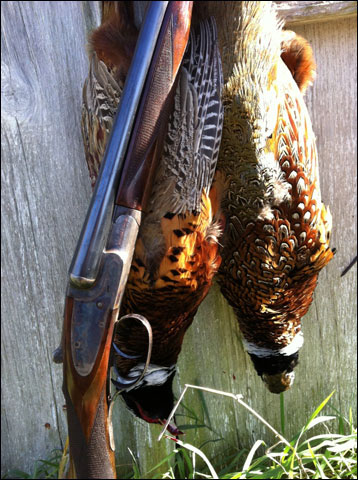
In my travels, I learned gun shops are actually different branches of the same family tree. New guns, classic guns, black guns, etc. Each section with its own personality. The consignment section is a home for drifters, which is why I’ve always been drawn to it and the stories those guns tell. Toward the end of this particular consignment rack, I saw something different – a highly figured AAA walnut stock married to the dainty sidelock frame of a 16-gauge L.C. Smith FW.
As I had hundreds of times before, I asked to handle it, cautiously ready for another letdown.
I shouldered it. I swung, training the barrels towards a decrepit pheasant mount on the wall. I wasn’t in the Kansas gun shop anymore. I was back in the middle of a frozen Minnesota cattail slough watching my setter lock down her first pheasant, I was in Nebraska shooting quail on that out-of-the-way piece by the railroad tracks, and I was also back on the farm with my brother laughing about something I’ve long forgotten.
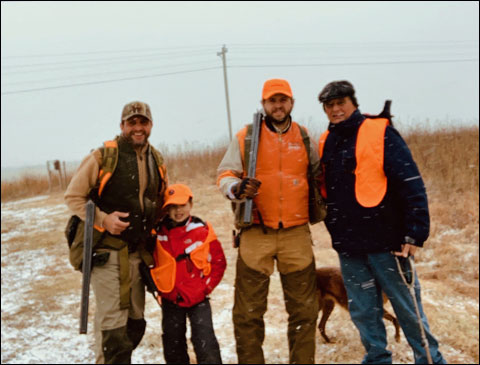
I snapped it back out and stared incredulously at it. The trigger guard glinted in the light, seemingly winking at me, saying “It’s been a journey for both of us to get here.”
While this Smith was different, it mimicked the swing and balance of my gun so perfectly I thought it an apparition. It was like walking up to someone you recognize and starting a conversation, only to embarrassingly realize it was someone completely different.
“This is it. This is the one,” I said to the shop owner, but mostly to myself. The decision was instantaneous but had taken a lifetime to arrive.
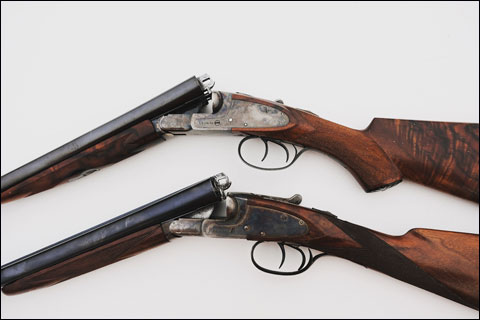
This gun was a 1928 28-inch, 16-gauge Featherweight Field Ejector with 2½-inch chambers. Eight years older than mine, nearly the same age difference between my brother and me. The left sidelock plate bore the gouge of a quickly crossed barbed wire fence and its case color had been faded by use. You could tell that while this Smith had been a drifter, it had been loved. Someone had cared about this gun to have had it refurbished in the decades before I saw it. Its non-original stock was the most beautiful I have ever seen on a Smith, no matter the grade, and the barrels and trigger guard had been reblued. This gun wasn’t going to be a safe queen. It was going to be used, so its collectability meant nothing. I understood the gun and its previous owner. The swing though; it was uncanny. In my hands, I realized this gun and my gun were alike in so many ways, yet so different. Like my brother and I, different, but at the end of the day the same when you look just a little deeper.
After years of searching, I found my brother’s gun.
I called my father and told him I found the brother to his gun. The search for my brother’s gun had been a silent journey, but when I told him, he sounded like he had known all along. He wasted no time and drove out to the gun shop and bought my brother’s gun on the spot.
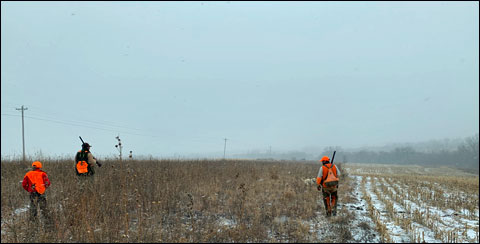
A few weeks later, for his fortieth birthday, my brother received a 1928 L.C. Smith 16 Gauge from my father with a note:
Joshua, I was so happy to buy this gun for you for so many reasons. I love the idea of you two brothers having matching L.C. Smith 16-gauge guns. Also, the thought that if, God Willing, Rehan has a son, one day, your son, Tyler, and his will go out hunting together on the farm originally owned by their great, great, grandfather, using the guns their fathers used.
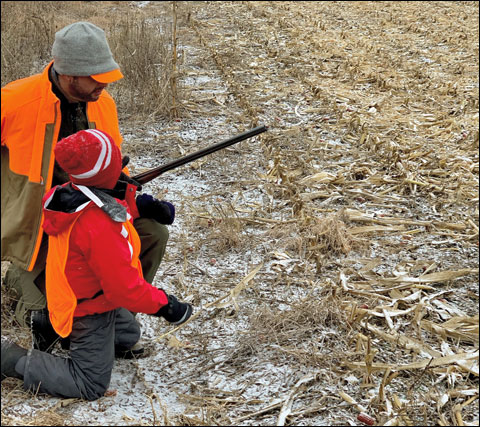
This December two brothers and an old setter made another two-hour drive north. In the backseat was Tyler along for his first quail hunt. I hope it was everything I’ve wanted it to be for him. Maybe more than anything, I hope he remembers walking behind his father and uncle, looking at the two L.C. Smiths.
I asked myself again how you replace an important memory. You can’t. You have to make a new one.
Rehan Nana is an outdoor professional and upland enthusiast. He prefers timber edges to open prairies, but will work both.

Rehan Nana is an outdoor professional and upland enthusiast. He prefers timber edges to open prairies, but will work both.


Comments